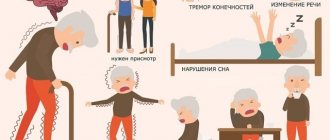The average life expectancy in Russia in 2021 is 73.34 years. 100 years ago she was almost 30 years younger - 42 years old. Most of us will become widowed in old age: according to Rosstat data for 2018, there are 688 widows and 258 widowers per thousand people 70 years and older. American psychiatrists Thomas Holmes and Richard Ray consider the death of a spouse in old age to be the most difficult test in life - in their stress scale it ranks first, and the severity of the experience is assessed at a maximum of 100 points. But almost any stress can be relieved. “Taki Dela” learned how to support loved ones and not burn out while helping others.
Photo: Unsplash.com
Advice from a priest
The Church treats death as an inevitable period in the life of every person, which completes his earthly path.
Tears, deep despair and unwillingness to reconcile and accept her fate indicate that the widow is not ready to let her husband go to the best of worlds. The death of a person ceases the existence of only the physical body, but the soul is immortal. To find peace, she needs the support and care of her family. All your energy, love and strength should be concentrated on prayers. You need to pray for the peace of mind of the deceased until the 40th day.
Priests advise concentrating all your energy, love and strength on prayers
The widow also needs to remember that she is not alone - her loving Lord is with her, and He will help her endure all the hardships. A state of despair is not an option. It should be understood that the Lord does not give a person more than he can bear, and always spiritually supports him in the trials that he sends.
You need to rid yourself of all superstitions. Hanging mirrors or drinking a glass of vodka on the grave of the deceased has nothing to do with Orthodoxy. Such rules were invented by people who have been to the temple a couple of times in their lives and are trying to present death as a kind of performance, where every action carries a sacred meaning.
In reality, death has only one meaning - it is the transition from mundane life on Earth to eternity
And it is important to think in advance where the person’s soul will be in order to reconsider all righteous deeds and sins throughout his entire earthly life
If grief has overtaken a young family with children, then the widow needs to get together and return to a normal lifestyle for their sake, in order to help them endure the loss. As a rule, family life improves within one year. The widow will need to fulfill the role of both parents so that the children can cope with the loss and live normally. The recommended time for mourning is from one to three years, after which the holy fathers advise getting married again.
Don't give up the support of your family and friends
If grief has come to your family, and overnight you have lost your loved one with whom you planned to live until old age, then it is almost impossible to cope with this misfortune on your own. The death of a life partner is a direct path to deep depression, which can rarely be dealt with without consequences.
For the first time after the death of a loved one, it would be best to move in with relatives or one of your reliable, trusted friends. A woman herself is an emotionally unstable creature, and in the event of the death of her husband or fiancé, it is generally dangerous for her to remain alone.
Emotional instability, coupled with depression and a feeling of hopelessness, can be expressed differently for each representative of the fair sex. If it is enough for a stronger woman to simply feel the support of her family to pull herself together, then it will be easier for another woman to completely renounce the world around her or, in a particularly “dark moment,” to think of following her beloved.
Important
Despite the risk of a nervous breakdown, you cannot restrain your emotions. It is necessary to let go of grief and mourn the deceased. Let it be hysterical, no big deal. It is much worse when a person completely withdraws into himself and is not ready to come to terms with his loss.
Stages of acceptance
Psychologists identify seven stages that allow you to come to terms with and understand what happened.
The first stage is called denial. The individual does not believe what happened and does not understand how to continue to live. May begin to behave inappropriately
It is important that there are people nearby who could bring the grieving person out of his state, distract him, and make him think about others who are also experiencing the death of a loved one. There is no need to try to console him, he is now unable to accept your help.
At this stage, the person is able to hear the voice of the deceased person, see him in the crowd, but this is all a reaction to what happened, and not a deviation in the psyche. The second stage is the manifestation of anger. The person believes that what happened was unfair, does not understand why it happened to him, to his family, begins to show his anger towards people who are alive and well, calmly walking down the street, sitting on a bench, communicating, does not understand, why are they alive when his relative is no longer there? The third stage is a feeling of guilt. A person begins to blame himself for not being attentive enough, behaving incorrectly, or spending little time. For some, this feeling persists throughout their lives. The fourth stage is a state of depression. The individual no longer has the strength to hide his condition, his emotions. One feels completely exhausted and the person becomes unhappy. The fifth stage is acceptance. The person finally realizes what exactly happened, the pain becomes less, and the depression slowly goes away. The realization comes that you can now let go of the situation and move on with your life. The sixth stage is the period of revival. After the death of a loved one, an understanding comes that one needs to live on, accept new conditions, but at the same time the individual withdraws into himself and communicates little with other people. One gets the impression that he is constantly analyzing something. This period can even last up to two years or more. The seventh stage describes the beginning of a new life. This is a period when the stages of grief are experienced, life is at a new level. Some individuals at this stage are trying to find new friends, change the environment, someone changes their place of residence, work, does everything to ensure that nothing reminds them of the past. For example, the realization may come that the death of her mother was a deliverance for her if the woman had been ill and suffered for a long time before this.
The problem is that not all people are able to go through the seven stages; sometimes they get stuck at the fourth stage, locked in their tragedy. In this situation, you need to contact a psychotherapist. A specialist will help you cope with the current situation and teach you how to overcome depression. A psychotherapist will help you overcome all stages of grief, maintain a healthy psyche, and prevent complications from developing.
https://www.youtube.com/watch?v=cRyzM63kL2c
The death of a father or mother literally deprives you of support; this is especially difficult for those people for whom family is the most valuable thing in life. For a person, a connection with his mother is the basis for a feeling of inner comfort.
Mourning, grief, depression after the death of a mother is a natural reaction of a normal person. After all, all the best that a person has was connected with your mother; her love always protected and protected you. Without a mother, a person feels orphaned. But if the state of grief drags on, disrupting the entire way of life, destroying the person himself, then we are talking about depression.
How to survive death from medical error?
When death occurs not as a result of a serious long-term illness or an accident, but because of a doctor’s mistake, a woman directs all her aggression, anger and other emotions in his direction.
In fact, no matter how hard it is, you can’t do this.
First, you need to understand that a doctor is the same person as all other people, and all people make mistakes. No matter how terrible it may sound, the cost of human error can be very high, including human life.
Secondly, the awareness that the doctor is experiencing this tragedy no less than the woman sometimes helps to cope with the flow of negative emotions. It would seem that what could worry a doctor, because of whose mistake a person he did not know died?
Such an event in the life of every physician becomes a turning point: many cannot return to their previous activities after the death of a patient due to their fault. The widow's anger and accusations can lead to a difficult psychological state for the doctor.
Thirdly, after establishing the cause of death, a criminal case always begins , during which an investigation will be carried out and the doctor will be punished.
Important! Finally, do not forget about the justice of God, who always punishes the guilty and protects the innocent.
The opinion of psychologists There is a way out
Experts have studied the emotional states of many people who have had to endure the death of loved ones and found out that there is a “grief reaction syndrome.” Of course, due to individual characteristics, the reaction to loss cannot be absolutely the same, but there are certainly common features. When starting a conversation on the topic “How to survive the death of a beloved husband?”, psychologists advise the widow to become aware of her feelings and emotions, which change in accordance with the stages of grief:
- shock (in most cases accompanied by hysteria);
- denial of what happened (it's hard to understand how everyone can live as before if my husband is no longer there);
- searches (dreams and sensations may appear that give the illusion of communication with the deceased, hysterics often resume, the woman refuses help and wants to leave after her loved one);
- despair (in addition to intense grief, the widow begins to feel remorse. It seems to her that she was wrong in many ways towards her husband and thereby shortened his life);
- apathy (complete indifference to everything around you).
What can you do to prevent sad feelings from making a woman unhappy forever? Such steps will give you the strength to survive grief.
Humility
It is necessary to clearly understand that death does not escape anyone alive, and it is no longer possible to influence what happened. If previously all your time was filled with worries about your husband, you need to change your activities. Think: would a spouse want to see his beloved in constant suffering? The fact that the wife continues to give joy to herself and her loved ones is an act that would greatly please the untimely departed husband.
Looking forward
You can't become indifferent. Be glad that in the past you were not deprived of happiness, rejoice in the current smiles of your loved ones, the beauty of nature, little surprises, read exciting books.
Useful things
New goals captivate you and drive away boredom. Meeting girls who have suffered the same loss helps a young widow cope with the death of her husband. As a rule, seeing the deplorable state of others, a woman begins to support, give advice from personal experience, and realize that she is not the only one who has suffered such grief. It is useful to start writing letters to suffering people.
Creation
Drawing, embroidery, knitting and any other types of creativity that a woman likes can distract her from sad thoughts and delight her with new skills and successes.
Communication
It is necessary to expand your circle of friends, and eventually start attending interesting events. In adulthood, for example, at 60 years old, it is easier to cope with the death of a husband if you explain to young couples how to understand, appreciate and respect each other. Perhaps, based on your rich experience of family life, someone will write an article or a whole book.
How grief manifests itself
Every person is different and everyone deals with grief differently. Some get involved in vigorous activity - work, sports, other activities. They try to fill their day as much as possible so that there is no time left for gloomy thoughts.
Others turn their attention to children and close relatives, giving them their care and warmth. This helps you feel needed and important. Still others devote themselves entirely to creativity, expressing their experiences in the form of paintings, poems, and stories. And still others simply plunge into their grief, withdraw into themselves, or even worse, begin to look for consolation at the bottom of the bottle. In this case, the person needs the help of a professional psychologist or psychotherapist. Relatives should not leave a person who is inclined to drown his grief in alcohol alone.
As for physiological manifestations, being in a state of grief, a person experiences the following sensations:
- weakness, lethargy, apathy, loss of strength, reluctance to do anything;
- increase or decrease in blood pressure;
- loss of appetite or, conversely, a desire to constantly chew something; in women, cravings for flour and sweets may worsen;
- rapid heartbeat, tachycardia, pain in the heart, dizziness;
- digestive dysfunction;
- exacerbation of chronic diseases.
All these symptoms are a natural reaction to stress. Gradually they will subside, and the person will feel better. The sooner the mourner comes to his senses, the faster his condition will improve.
Feeling of prospects being destroyed
This feeling appears when the person who was irretrievably lost had goals and plans that could not be achieved. In this case, the best solution is to develop new perspectives. Your actions should proceed from a surplus approach - make the most of the existing unpleasant situation for personal growth and improve your life.
Of course, working out the prospects will take more than one day. But this needs to be done. And the more time you devote to this, the faster this cause will be eliminated.
You can work out the prospects like this:
- Create a file in Evernote or any other application that supports automatic synchronization and write down ideas on how you can improve your life after this situation. Of course, you can work purely with a computer, but online notepads are better because you can immediately write down an idea if you have your phone at hand. This must be done throughout the transition period.
- Start implementing the ideas that come to mind. It is clear that in depression the most difficult thing is to start doing something; volitional potential is reduced almost to zero (especially in deep depression). But if you regularly take small, feasible steps, over time you will get carried away and even enjoy transforming your life.
One business coach essentially did just that. After the death of his wife, he began to work more actively, which contributed to the growth of his professionalism, the number of clients, and earnings. But the main thing here is not to go to the other extreme - try to go to work so as not to think about the loss. In this case, we are essentially replacing one dependency with another. Our task is to become self-sufficient people. You can use work to take your mind off your grief, but only if it helps you become stronger and actually overcome depression, not drown it out.
Stay close!
As has been mentioned several times above, the most important thing in such a situation is not to leave the woman alone with her grief. The very physical presence of loved ones, human warmth, hugs, even silent sympathy, a timely lending of a “friend’s shoulder” are priceless.
In psychology there is such a concept - containment. Imagine yourself as a vessel into which a widow can “pour” at least a small part of her grief in order to survive, cope, and not go into psychosis or suicide. As a rule, nothing special is needed for containerization. Simple presence!
But for such support, loved ones themselves must be psychologically strong and in a holistic state. Therefore, they can also be recommended to work with a psychologist. There are even special support groups for those who have lost a loved one.
By joint efforts, a widow and her family and friends can not only alleviate suffering after the loss of a loved one, but also lay the foundation for a future life filled with meaning, activity, not only the light of the memory of the love lived, but also interest in the new, readiness for change, achievements, joy. Strange as it may seem (and even scary!) at the moment of loss to believe that there will still be happiness, but it is people who have experienced a lot, who have experienced grief, who become wise, kind and appreciative of life!
What is the treatment for depression from loss?
A person may have difficulty overcoming depression due to the following circumstances:
- thanatophobia occurs;
- pain from interruption of emotional connection;
- lack of feeling of security;
- strong confidence in one's guilt;
- resentment towards the person who left and left the grieving person;
- misunderstanding why this happened and the loved one is now gone.
Then you can’t cope without the help of a doctor. Psychotherapy sessions have proven themselves the most. However, in very advanced or profound conditions, medications may be prescribed, namely:
- antidepressants;
- neuroleptics;
- tranquilizers.
The doctor may also prescribe:
- a course of vitamin therapy;
- physiotherapy;
- nootropic drugs.
During the consultation, the psychotherapist determines at what stage of processing grief the patient is. Based on its condition, the best option for the further path is selected. In some cases, such as severe cases of depressive disorder, a psychiatrist will prescribe antidepressants. They improve physical condition and remove the feeling of constraining despair and hopelessness.
How to get out of depression after the death of your husband by talking to a psychotherapist? A mandatory element of therapy is interpersonal, cognitive behavioral therapy, as well as individual psychotherapeutic sessions and work in a support group.
In psychology, the grief process has several stages, which a person goes through in different sequences. These are denial (isolation), anger, bargaining, depression and acceptance of the situation (humility). You don't have to go through all the stages to get out of grief. However, if a person falls into a depressive phase, he may not have enough strength to get out of it on his own.
This requires individual sessions and conversations with a specialist. It will help you find internal resources to survive this stage. At this moment, it is important for the patient to have the opportunity to speak out and express emotions. At the discretion of the specialist, elements of art therapy and sand therapy may be used.
Joining a support group for people who have experienced the death of a loved one can also be very therapeutic. The patient ceases to feel alone in his grief. He has the opportunity to share his feelings with people who understand him.
Sometimes there is a need for the help of doctors - do not hesitate to contact them; in such cases, treatment is carried out in a hospital, under the supervision of medical staff.
Among the drugs used in various methods, one can name antidepressants, tranquilizers, and sometimes antipsychotics. Physiotherapy, vitamin therapy, nootropics, proper daily routine, help from a psychologist - all this helps to get out of depression completely and without relapse, because we are talking about a reactive etiology.
All of us go through loss.
At such moments, it is important not to let yourself plunge into the abyss of despair and find the strength to survive. It turns out that time really heals and reveals new colors of the world
After all, spring always comes after winter, whether we like it or not. When remembering your mother, let there be only light sadness and gratitude that she was with you. The departed are always invisibly present as long as people remember them.
You cannot live in the past, if you want to take only good things from the past, think more about others and very little about yourself, and then there will be no getting stuck in grief. Experiencing grief does not mean forgetting about it, but learning to live fully after the loss.
It is not always easy to determine this condition, however, the following symptoms will help identify deep depression in order to consult a specialist in time.
- Sadness and longing for a loved one that does not go away for several months.
- A person is haunted by images of the deceased, hallucinations and visited by obsessive thoughts.
- Refusal to accept reality.
- Abuse of alcohol or psychotropic drugs.
- A person consciously avoids those things that remind him of the deceased.
- Feeling of emptiness and loss of meaning in life.
- Deep, persistent feeling of guilt.
- Suicidal thoughts and suicide attempts.
- Lethargy and inability to perform daily activities.
- The belief that the deceased is alive.
Observing emotional reactions
Relatives should carefully monitor changes in the widow’s psychological state, her impulses, and general mood.
If you notice stuckness at any stage of grief, destructive or self-harming behavior, it is necessary to provide help from a psychologist. This is an absolutely normal practice and does not at all indicate deviations in the woman’s psyche. The support of a specialist in this profile will reduce the degree of human suffering and save him for later life, raising children, and successful work. If a widow has prejudices against turning to a specialist or is hesitant, you can initiate an acquaintance with a good psychologist under the guise of a friend or some other pretext.
Question for psychologists
Asked by: Julia, 40 years old
Question category: Stress and depression
22.11.2018
Good afternoon, I am 39 years old, my mother is 69. Two years ago we buried my father after a long illness. It was a lot of stress for all of us. He was a wonderful husband and father, he always took care of the family, my mother was “MARRIED” in the literal sense of the word. I understood that it would be difficult mentally, but it had to be overcome. With mom it turned out to be much more complicated! She has always been a strong-willed and rather powerful person; with age, all her character traits became more pronounced. They lived in marriage for 37 years and dad was everything to her. After the funeral, for the second year now, she does not want to leave the house. My already not very good state of health has worsened (my blood pressure constantly fluctuates, osteochondrosis, I have lost a lot of weight, I eat little). Constant tears, inadequate response to harmless words, accusing me of not living up to her hopes and that no one needs her. Although this is absolutely not true. I have my own family: a husband and a 6-year-old son, we live 10 minutes walk from each other. After the funeral, my child and I moved to my mother’s place and lived with her, helping and encouraging her. And now I cook, clean, go shopping and bring her everything she needs every other day, or even stay overnight, and on weekends, too, with her. We call each other several times a day. But you’ll never guess in what tone my mother will answer me; she might hang up halfway through the conversation if my tone seems “not right.” To be honest, I’m already afraid to call her, because I don’t know what kind of mood I’ll get into. She quarreled with all her relatives, accusing them of all conceivable and unimaginable sins. It got to the point that my relatives had already begun to sympathize with me because of my mother’s behavior. Even strangers who answered her “not the way she wants” are equated to enemies! When asked to go for a consultation with a psychologist, there is only one answer - they won’t help me in any way, I myself can teach them some sense! Against this background, over time, I myself began to feel depressed. I became nervous, embittered, began to lose my temper both at work and at home, people and society as a whole began to irritate me! I want to take it and run far into the dense forest so that no one touches or says anything. I try not to react to my mother’s words addressed to me, but I can’t, it becomes offensive and I literally give up. I understand that she is partly a manipulator, before all the “bumps” went to my dad, but now I am instead of him... All my friends and relatives tried to pull her out of this state, but in vain. She herself says that she doesn’t want to go out into the street, that there’s no point... people are walking down the street, but Vitya (my dad) doesn’t have a tear... that is. Dad was the meaning of life. I’m trying to convince her that her life is valuable regardless of her dad, that she needs to move on with her life, he would not approve of such behavior, but so far there is no progress... Please advise what can be done and how not to slip further into depression? I love my mother and want to help, but sometimes it just becomes unbearable... Thank you.
Father's advice: how to accept the passing of a loved one
A simple comparison of the torment and pain of a deeply religious person and a person whose soul is empty (it simply cannot be empty, which means it is filled with worldly passions and temptations) will show the high degree of despair of the latter. Modern culture has erased the terrible topic of death from the everyday arsenal of life. Completely in vain. Alas: again we have to remind you of the obvious truth: this is impossible. The departure to the afterlife is inevitable, inevitable.
Previously, artists, musicians, and writers did not avoid the terrible topic. On the contrary, they sought to understand, realize, and accept the inevitability of the cessation of worldly existence. They tried to give some kind of hope, an understanding of eternity, and thereby protected people from severe mental trauma in moments of despair and grief. This helped to accept the inevitable and go through all the stages of a loved one’s departure with wisdom and fortitude. Deep spiritual knowledge is a reliable shield in difficult times.
If trouble happens in the house, we go to the temple, to God, to ask for mercy and the protection of heavenly powers. We want the Almighty to intercede for us, help us, take away torment and suffering, and make it easier to survive the death of a loved one. We naively believe that with a single act we can change the current world order. One such act is not enough. Although, if this movement of the soul becomes the first step towards deep and comprehensive faith, the worldview will change. The road to a new understanding of things, to finding other – eternal values – will be open.
Today's science makes timid attempts to study pre-death and post-death experiences. Books are published, experiments are conducted. Advances in medicine make it possible to bring a person out of a state of clinical death. The body is repeatedly weighed during the process of biological death. Scientists are trying to measure the soul with grams. Hypotheses, doubts, refutations do not dispel doubts and leave eternal problems unresolved. A person wants something completely different: a simple, deep, everything-explaining faith.
He begins to open his soul to God. Searches and gradually finds answers to questions that arise.
- What helps us survive the death of a loved one, first of all, is the realization that we are not the owners of the reality around us. She's not ours. We are temporary guests here. Everything will have to be given away. It is necessary to learn to part calmly, to develop the skills of a correct attitude towards loss.
- A person is not an iron rock and has the right to feelings. Sometimes, unbearably difficult. If you need to cry, sob, howl, fight hysterically, break, smash, destroy (up to certain limits, of course), then you don’t need to interfere with him. The sacred life right of everyone brought into the world by a father and mother is to suffer, to suffer, to experience pain. You must go through this in order to then become much stronger and calmer. Necessary mourning rituals existed in every culture. Our social environment is no exception.
- Endless sorrow and despair is a great sin. So is suicide. God gave man life in order to go through a series of difficult, difficult trials, and find true Faith. It won't work any other way. You shouldn’t look back at false morality and look for other people’s recipes. Through life, a person follows his own path, the path given to him personally. But it doesn’t hurt to look at others. They also went through this, which means we can do it too.
- For a believer there is an afterlife, a miracle of resurrection. “God is not the God of the dead, but of the living.” The very concept of death in Orthodoxy is only a temporary process of transition to a better world. Best! Then why grieve? Everything is different there, incomparably better. However, such a fate must be earned by living a righteous life.
- Often, a grieving person is consoled by the thought that a relative or loved one who died untimely sees everything and wants us to be happy. It is unpleasant for him to see us in inconsolable grief. The time will come: we will all meet and rise in God.
- And finally, the insidious question: “Imagine if we had eternal life on Earth? Wouldn't people be mired in sin? Wouldn’t you give your souls to the Devil?” The man is weak. One day he transgressed God's providence. As a result, he received death as torment and redemption. But God is merciful. He gave his son Jesus Christ to be crucified, opening the way for people. There is a direct path to happiness. It is difficult, but righteous. You won't be able to deceive or cheat.
Avoid loneliness
Be sure to tell your friend about your feelings. At some point, you will want to hide from the whole world and just remain silent, but it is in such a situation that communication with a loved one is necessary. Don't demand too much from him, because he may not know what to answer or how to console you. If a person does not understand you, do not move away from him, but simply speak out. Over time, you will become comfortable communicating, and this will greatly ease the state of grief. You shouldn't go to parties or birthdays if you feel uncomfortable. The holiday atmosphere may seem inappropriate and even offensive to you. Communicate with close relatives, the loss has shocked them too
If the other parent is near you, pay special attention to him. Together it will be easier for you to overcome grief
How to continue to live alone?
Loneliness is not a problem if a person is self-sufficient: he is not bored in his own company, he is not afraid to be alone with his thoughts.
Of course, this is not the time to talk about this at such a difficult moment, but still, how to survive grief alone?
- When a person is left alone with such strong emotions, he learns to understand himself better, recognizes his energy potential, becomes stronger in spirit and more self-confident.
- Loneliness frees up time for self-knowledge, self-development and self-realization.
- Loneliness helps you feel the pain of loss to the fullest, let it pass through you and free yourself.
Reference! Psychologists recommend that after the death of your husband, you must exercise at least once a day, and it does not matter whether you are 25 years old or 60.
The pain that a woman experiences after a loss can be felt on a physical level, and playing sports rebuilds the body and even changes the physiological response. In addition, during intense stress, negative emotions spill out.
Stages of Accepting Grief
To accept what happened, a person must go through several stages.
Shock
Most often, a person is shocked when his mother dies. This happens not only to children, whose parents are most often still young and die unexpectedly. Even adults, having learned about the sad event, are in a state of shock: most people do not think that their parents’ lives will one day end. Even if the mother has been suffering from an incurable disease for a long time and the approximate time of her death is indicated by doctors, people often hope that life will last a little longer.
A defensive reaction of the psyche is observed. Often, the children of a deceased woman cry, scream, and experience severe nervous excitement. It is also possible that inhibition reactions predominate: a person withdraws, becomes emotionally cold, may fall into a stupor, and think more slowly. This condition is necessary to alleviate pain.
Negation
Then the denial stage begins. A person refuses to perceive the reality of his mother’s death, because the consciousness does not want to put up with the thought of loss. Often a person left without a parent convinces himself that what is happening is just a bad dream. He may express his feelings and emotions in words or try to convince himself mentally. Sometimes the condition becomes so severe that others have doubts about the mental health of the person who has lost his mother.
Anger and resentment
Then comes anger, a feeling of resentment. If a woman was sick or was the victim of an accident, her son or daughter may blame the doctors who failed to cure the pathology as the culprits of the incident. Sometimes there is a desire to take revenge, to hurt these people. If the cause is old age, negative emotions may have no object. Questions about why this happened, why this happened, are not one-time questions: they can persist for a long period of time. Occasionally, children become angry with the deceased herself for her death.
Irritation may intensify if the loss is accompanied by financial difficulties: the need to pay debts and loans.
Such a reaction occurs because a person feels helpless: he cannot resist death or avoid it. Anger is a reaction to fear, the realization that every person will one day die.
Guilt
When the anger passes, a feeling of guilt arises. A person may consider himself guilty because he upset his mother in some way during his lifetime, committed some actions that she did not approve of, paid little attention, rarely came to visit or called, talked about love, or helped. People often claim that they would change a lot in their behavior if they had the opportunity to live part of their life when their mother was still alive again. Possible scenarios will be constantly repeated in the imagination, sometimes such thoughts become obsessive.
They stop looking for the culprit: now attention is directed to oneself, self-digging is characteristic. This is explained by the desire to control what is happening, an overestimation of the ability to influence surrounding events
Depression
The suffering becomes the most intense. Often the pain is not only emotional, but also physical, and somatic symptoms are added. A person may cry often, react painfully to any mention of loss, and often cannot control emotions. The option when feelings are lived in silence is considered more severe: often those around them do not even realize that their relative, friend or colleague is suffering. In the most severe cases, people lose the meaning of life and stop believing that anything good is still possible in their lives.
Acceptance and reorganization
A person is emotionally aware of the death of his mother. He understands that life goes on, makes plans for the future, begins to devote more time to communicating with friends, achieving work goals, and restores lost social contacts and his former way of life. Depression ends after the death of the mother, and is replaced by a less strong feeling - melancholy, sadness. What happened is not completely forgotten, but the trace left by the tragedy does not interfere with living on.
Is it possible to burn a body after death?
Hieromonk Dimitri (Pershin), deputy chairman of the Brotherhood of Orthodox Pathfinders, editor-in-chief of the television, cleric of the Krutitsky Patriarchal Metochion in Moscow
Yes, it is possible to cremate (burn) a body after death, but the Church does not recommend doing this. God will resurrect everyone: those who died at the front from a bomb explosion, those who drowned, and those buried in permafrost in Stalin’s camps. The resurrection will be universal. And how exactly the relatives buried the person’s body cannot influence the resurrection.
The Church does not recommend cremation because cremation does not cause pain to the deceased, but to the living, because it is an image of despair. And the burial of the deceased, when the body is buried, is the gospel image of the grain, which will then sprout - at the hour of resurrection. “Truly, truly, I say to you, unless a grain of wheat falls into the ground and dies, it remains alone; and if it dies, it will bear much fruit. He who loves his life will destroy it; But he who hates his life in this world will keep it to eternal life. Whoever serves Me, let him follow Me; and where I am, there will my servant also be. And whoever serves Me, My Father will honor him. My soul is now indignant; and what should I say? Father! deliver Me from this hour! But for this hour I have come. Father! glorify Your name. Then a voice came from heaven: “I have glorified it and will glorify it again.” (John 12:24-28).
In the Orthodox tradition, the body of a deceased Christian is perceived as a shrine. The reason for this is not only the belief in the Resurrection, but also the fact that the rite of the funeral service took shape in the 2nd-3rd centuries, during the era of persecution, when every Christian was, to one degree or another, a confessor, and many ended their lives as martyrdom. The first Christians were blackmailed, convincing them to worship pagan gods: you believe in the resurrection, and we will burn you and scatter the ashes! And even in those days the answer was given: the God of the Resurrection is the Creator. Therefore, you don’t have to worry about the fate of your flesh. God has power over the elements; Evangelist John the Theologian describes the picture of future events as follows: “Then the sea gave up the dead who were in it, and death and hell gave up the dead who were in them; and each one was judged according to his works” (Rev 20:13). In later times, Christians did not care about the fate of the body after their death. Saint Monica, mother of St. Augustine, who lived in the 4th century, died far from her homeland. Friends asked her before her death, “isn’t she afraid to leave her body so far from her hometown. “Nothing is far from God,” she answered, “and there is no need to fear that at the end of the world He will not remember where to resurrect me.”
Nowadays, during the funeral service, you hear that the body of the deceased is called the relics, like the throne, they incense it on four sides and turn to God with a prayer for the deceased to be numbered among the Heavenly Church: “From the spirits of the righteous who have died, give rest to the soul of Thy servant, O Savior, preserving it in a blessed life, even with You, Lover of Mankind” (you can read more about this from Bishop Athanasius (Sakharov) in the book “On the Commemoration of the Dead according to the Charter of the Orthodox Church”). Unfortunately, these days during funeral services we often pray for the forgiveness of sins rather than glorify them. And even though not all of the departed are examples of life in Christ, we still ask God, Who “so loved the world that He gave His only begotten Son” (John 3:16), to open the gates of His Kingdom for them.
|
First steps
It is very difficult to return to the usual everyday environment and get rid of the grief that has filled the entire spiritual space. But you need to gradually begin to move away from sad memories of your loved one.
Nothing will help you survive the death of your husband without freeing your head and home from the past and those things that remind you of the grief you experienced.
1. A woman must accept the death of a loved one, since everyone, sooner or later, leaves this world, and no one can change this way of life.
People only aggravate suffering by refusing to perceive reality as it is. A woman needs to reconsider her life values and realize that she is much stronger and more resilient than she thinks.
2. The best way to distract yourself from sad thoughts is to start looking for new goals and guidelines in life.
Indifference to everything is the path to degradation and devastation of the inner world, which can lead to serious mental disorders. After all, it is better to take into account the advice of a psychologist than to accumulate negativity and wait for the condition to worsen.
The husband's life has come to an end, but his wife's life continues to go on, and one must be able not to miss the opportunity to live it with dignity. For the sake of the husband, who probably wanted to make his beloved woman happy, for the sake of the children and for herself. You can realize yourself at any age by supporting your desires with actions.
3. Do charity work.
Good deeds (especially for people who are in a similar situation) always bring joy and bright feelings. It will become much easier to cope with the death of your husband if you help others.
It charges you with positive emotions, energy and makes it clear that someone needs you. Supporting other people who are also experiencing loss can help you cope with your personal unhappiness.
4. Don't isolate yourself, communicate with other people.
Despair consumes and does not allow one to get out of the cocoon in which a woman places herself. Loneliness is useful, even for the most sociable and cheerful people, but not in excessive quantities.
Make new friends. You can give advice to young married couples if you have extensive experience in relationships.
You might even want to write a book or story based on this. And creative activities always have a beneficial effect on overall well-being.
Charity
An ancient wisdom says: if it is difficult to cope with grief, find someone who is also having a hard time and help. It is no coincidence that at all times it was widows who were the pillars of charity in society.
To do this, it is not necessary to donate any money, which after the death of the “breadwinner” husband may be extremely scarce. Modern realities allow a woman to overcome her grief, find new meanings and escape from a depressive state through volunteering, missionary work, and all possible assistance to socially unadapted people (orphans, old people, people with disabilities, widows, single mothers). Bringing groceries to an elderly relative or babysitting your neighbor’s children is not only a good deed, but also going beyond your grief.
A special type of charity for a widow can be perpetuating the memory of her husband and his deeds in life. It is enough to recall the great feat of Margarita Tuchkova, the wife of the general who died at Borodino, in remembering the heroes of the battle and supporting numerous widows of that time. Even if the deceased spouse was an ordinary person, you can collect memories of him for the children, his memorabilia, and hold a charity event in his honor. For example, the American tradition of installing memorial sofas in hospital waiting rooms or benches in parks is impressive. The widow of an ordinary physical education teacher in a provincial Russian city, together with the administration of the school where her husband worked, annually holds streetball tournaments. And let the pies baked by herself serve as prizes - the name of her husband sounds for a new generation of children.
Main causes of depression
To get out of depression, you need to know the main list of reasons that could cause this condition:
- serious illness;
- loss of a loved one;
- dismissal from work or difficulties;
- presence of chronic fatigue;
- misunderstanding on the part of people around you (this especially applies to close friends and family).
The impetus for the formation of a depressive state is given by a psychotraumatic situation. A funnel of negative emotions sucks a person into a swamp.
In this case, it is very important to distinguish depression from a short-term (albeit strong) experience. The correct diagnosis can be made based on the following signs:
- Anhedonia is the loss of the ability to notice changes around, the absence of any positive emotions, as well as laughter.
- Developed pathological thinking - in this case, all life situations will be perceived through a negative prism, a pessimistic attitude prevails.
- Inhibition in reactions and actions, prolonged gloomy mood.
On the other hand, depression can develop completely individually, for example: someone is inclined to withdraw into themselves, someone continues to communicate with others as before, but in some situations they are inclined to show aggression and more. Lack of timely and correct help can lead to further deterioration of the chronic condition.
It must be remembered that when trying to help a person who suffers from depressive neurosis, one must try to avoid the influence of such a negative state on oneself. And such a possibility exists if it is not a professional doctor who is trying to overcome depression, but just an untrained person.
Don't leave too much time to worry
If possible, the widow should return to work and daily activities as soon as possible, since they are full of meaning and a natural distraction from difficult experiences.
At the same time, we should be careful about the threat of self-remorse inherent in many women who have experienced the agony of losing a loved one. Attempts to fill the gap in the soul and life with self-exhaustion threaten self-destruction of the will, feelings and loss of health. We must also remember that acute trauma and subsequent regret, as well as concerns about funerals, life adjustments, and weight loss lead to chronic fatigue. Maybe after some time it is worth planning, for example, treatment at a sanatorium, an easy trip, a vacation to visit relatives.
Studying, training, learning new skills is good practical medicine for a grieving person. They open a new circle of communication and give the idea that the deceased will be proud of the professional development of his beloved. Through the support of the church community, the church's support can be found in prayer and care for the needs of the widow. Loving and caring friends will pay attention and show understanding in such a difficult time.
It’s even worth looking for new hobbies - hobbies, without constantly being left alone with the memories of your deceased spouse.
The time has come for the widow, who previously had a personal interest, to return to her affairs. Returning to reality with hope will allow her to overcome doubts about whether there is life after the death of her beloved husband.
Definition of the concept and signs
The fact that depression has set in after the death of a relative is evidenced by the presence of the following manifestations:
- the world is seen as black, in shades of gray;
- no interests;
- thoughts only about the deceased person;
- food is consumed automatically;
- may suffer from insomnia, nightmares;
- increased anxiety;
- thoughts about one's own death;
- melancholy is constantly present;
- the person feels guilty;
- concentration is noticeably reduced, the person is unable to concentrate on anything;
- his motor skills and thinking become inhibited;
- there is slowness of speech;
- feeling of emptiness and worthlessness;
- lack of social contacts, desire to be alone;
- apathy;
- changes in behavior that are manifested by special oddities, for example, vagrancy;
- hallucinations may occur;
- a person stops taking care of himself;
- physical weakness and fatigue are felt;
- the individual becomes sedentary;
- there is a constant expectation that something bad will happen;
- a feeling of physical pain, which is unfounded by any disease, is a psychosomatic manifestation;
- Excessive sweating, tachycardia, and possible arrhythmia may be observed.
If these manifestations persist for three months or longer, then a diagnosis of depression is made. This state will be especially profound if the individual was present at the death of his loved one.
The following signs may indicate a condition that requires mandatory treatment:
- lack of acceptance of death;
- disappearance of goals in life;
- shock after the death of a loved one;
- inability to trust someone;
- numbness (for example, can be observed when a child dies).
To understand exactly how to get a person out of depression while at a distance, you need to understand what such a condition is. Depression is usually defined as a severe disorder that causes a person to feel only negative emotions. From this:
- the sphere of motivation suffers greatly;
- cognitive representation changes in the opposite direction;
- behavior takes on a passive form.
There are severe emotions, a regular feeling of depression and even despair, which cannot but affect the overall well-being. Everything that was interesting to a person before suddenly ceases to captivate him completely. The future becomes unpromising for him, the person begins to torment himself. It seems to him that he simply does not have enough strength to overcome all the difficulties that have befallen him.
In some cases, the process takes on a pathological form and, accordingly, requires treatment from a psychotherapist. In this case, support from loved ones and friends alone will not be enough. You need to seek help from a specialist (and in some cases even undergo a course of medication).
There are signs by which we determine for ourselves psychologically healthy.
Will it be possible to meet a loved one after death?
Priest John Zakharov, rector of the Church of the Intercession of the Blessed Virgin Mary at the Russian Children's Clinical Hospital (RCCH), Moscow
We believe that after death, meeting with loved ones is possible. We have only a theoretical idea of the afterlife. We don’t know what it will really be like there, whether there will be a meeting of loved ones after death, although we can talk about this for a long time.
From experience serving in a hospital church, I know that when a child dies, mothers no longer ask anything. In this state of shock, they have no time to talk. After a while they may come, we can pray together, but at the very moment of the child’s death, mothers become isolated in their grief.
It is absolutely obvious that after death we will all find ourselves in the place where Love reigns. But Love can reign only when there is an object of love. A person cannot love “abstractly”; he needs the one he loves. Of course, the main object of our love is Christ. But we also love our loved ones. Some become so attached to animals that they cannot imagine their life without a cat or dog. I don’t know about a specific cat, but the love that a person experiences in life will, of course, be with him there, after death. For this reason, man was created to bliss in love. If a person does not consciously fence himself off from this love, does not consciously drive it away, then we hope that we will be consoled there.
Understand your feelings
First of all, you need to understand that you can cope with grief in any case. For some it takes several weeks, for others it takes several years. Don’t compare yourself to anyone and don’t rush to pretend that everything is fine. In due time you will understand that grief is receding. Remember: Mom always wanted you to be happy and calm. Try to understand that she would not want your grief. Start slowly returning to your normal life and don’t blame yourself for it. The person closest to you would never be upset because you long for happiness.
How to cope with the death of your mother? Memories will help you accept your loss. Preserve the image of your loved one as much as possible not only in your memory, but also on paper - write down everything you remember about her. Also, from time to time, tell other people about the deceased. So her image will not dissipate for a long time. Ask relatives and family friends about your mother. Their stories will make your memories more vivid and colorful. Remember that it’s impossible to remember every little detail, so don’t beat yourself up if you forget something.
Regular and adequate sleep will help cope with stress and cope with the death of your mother. Spend 7–8 hours a day on it. This way you will not be overtired and will be able to adequately assess your condition. Don't forget about self-care - try to look your usual, but don't be too hard on yourself. If grief has consumed you so much that complete apathy has set in, allow yourself to forget about everything for a short time. As soon as you feel stronger, try to restore your usual daily routine. Some things in it may remind you of your mother. Make a to-do list so that in moments of acute melancholy you can be in the company of people who can provide support.
Narrative stability
Many people do not perceive transformation stories, without knowing why. At least we are at least starting to protest against them.
These happy endings, artificially attached to sad stories, are starting to (very slowly) go out of fashion.
Honestly, I think that's what makes the Harry Potter books so successful: they're dark. J. K. Rowling went to the deep end without trying to make it cloying, cute, or sweet. At the end of the book, there was no happy resolution of all the problems, although the ending is not without beauty. Loss, pain and grief exist in our world and they have not gone away. The heroes carried them within themselves.
Rowling's world is close to all of us because we need stories like ours.
Stories are powerful. Throughout the existence of mankind, mythology, cosmogony and fairy tales have given us images that we rely on and imitate. They helped us find a place for our experiences in the huge picture of the world. And they still help. We still need stories.
And we need a new cultural narrative - one that would truly coincide with our experience, with the content of our soul, more than with a cheap TV movie.
If we are to change the world, if we are to create new, real, realistic and rewarding stories to live, we must reject happy endings.
Or perhaps reframe the very idea of it.
A happy ending to a tragic event like the one you are experiencing cannot be “everything turned out okay in the end.” This is simply impossible.
Time does not heal
Psychologists, of course, help bereaved parents. They give advice on how to cope with the death of your son, but before you listen to them, you need to understand several important things. This is especially true for those who want to help their friends or relatives overcome grief.
No one can come to terms with the death of their child. A year will pass, two, twenty, but this pain and melancholy will still not go away. They say that time heals. This is wrong. A person just gets used to living with his grief. He can also smile and do what he loves, but he will be a completely different person. After the death of a child, a black, deaf void forever settles inside the parents, in which unfulfilled hopes, unspoken words, feelings of guilt, resentment and anger at the whole world huddle like sharp fragments.
With each new breath, these fragments seem to increase, turning the insides into a bloody mess. Of course, this is a metaphor, but those who wonder how to cope with the death of their son experience something like this. Time will pass, and the bloody mess will already become a common occurrence, but as soon as some external irritant reminds you of what happened, sharp thorns will immediately break out of the embrace of emptiness and frantically dig into the already slightly healed flesh.
Share the article on social media. networks:
Butterflies, rainbows and the culture of transformation
Our culture's ignorance about grief comes from many sources. There is so much behind these simplifying, seemingly harmless platitudes! We have already talked about the perception of grief as a problem that needs to be solved: it is on this idea that most of the statements of others about your condition are based. But the roots of our culture unfamiliar with grief lie deeper. The widespread adoption of a misunderstood medical model is just the beginning.
A quick internet search for the words “grief” or “suffering” turns up hundreds of thousands of memes with rainbows, positive messages, and phrases like “this too shall pass.”
We acknowledge that difficult things happen, but we are confident that with due diligence and the right attitude, everything will be great again. After all, our books and films about the aftermath of tragedy usually feature a widower or a grieving mother who, by the end of the story, feels even better than before. If sometimes everything seems a little sad or bitter, that's normal, because the main character has now learned what is truly important in life.
An inconsolable parent does a lot of work on himself after the death of a child, and just think - otherwise this would not have happened. A terrible, deadly disaster almost destroyed the entire family, but at least brought it together. Everything always works out for the better.
Part of our culture's strange relationship with grief comes from a seemingly innocent source: entertainment.
All our cultural stories are stories of transformation. Stories of redemption. Books, feature films and documentaries, children's fairy tales, even the fairy tales we tell ourselves - they all end on a positive note. We demand a happy ending. If it didn’t happen, it’s the main character’s fault. Nobody wants to read a book where the main character continues to suffer at the end.
We believe in fairy tales and Cinderella stories, where, thanks to perseverance and effort, everything turns out well. We face adversity with our heads held high. We don't let adversity weaken us, at least not for long.
Our heroes, real and fictional, are examples of courage in the face of pain. On the contrary, villains and unpleasant characters usually refuse to overcome their pain.
Our culture is a culture of overcoming.
Bad things happen, but we come out of crisis situations better than we were before. These are the stories we tell each other, and not just on screens.
Social science researcher Brené Brown argues that we live in a “Gilded Age of Failure,” where recovery stories are fetishized by their redemptive ending, obscuring all the darkness and struggle that precedes it.
Our cultural narrative tells us that adversity helps us grow beyond ourselves and that no matter how dire the situation may seem, the end result is always worth the struggle. You will reach the final, you just have to believe. The happy ending will be brilliant.
People experiencing grief experience impatience from others precisely because they are not following the coping program that our culture dictates.
If you don't "transform", if you don't find beauty in your suffering, you are a failure. And if you don’t have time to make this narrative transition from tragedy to transformation before we get distracted by something new, then you’re living wrong.
In real life and the stories we tell, there is a non-disclosure agreement. In our culture, people don't want to hear about anything that can't be fixed. There is a reluctance in our culture to know about pain that will not be rewarded. But there are things you have to learn to live with - and this is not a happy ending. No matter how many rainbows and butterflies you throw into the plot, many stories don't end well.
Resentment and guilt
It happens that depression is caused by resentment towards another person that he has died. Yes, this happens in psychological practice, and quite often. This, of course, is irrational, but only irrational beliefs can plunge you into depression.
Another common reason is guilt. A person may feel that if he had done or not done something, the other person would not have died. As a rule, this is an irrational feeling (since he is only so smart now, and then he objectively did not know that this action could lead to death. Or, in general, there is no connection between that action, which may or may not have happened, and death relative).
Here you need to constantly remind yourself that you then acted in the best way available to you. Well, you didn’t know what to do then. And every time you feel irrational guilt, remember this.
Of course, it also happens that a person is really to blame. In this case, it is not necessary to eliminate emotions, but to draw conclusions. Yes, you made a mistake. Sometimes mistakes are costly. But this is the price that had to be paid for a very important lesson that will not be written in any book.
So in this case, you need to think about what conclusions you need to draw. There is nothing you can do; you won’t be able to correct the error. But it is very important to use the findings in real life.
Pessimistic view of the world
Pessimists do not get depressed, they only sometimes get out of it. Moreover, they very often say: “So this is reality. There is no need to look at the world through rose-colored glasses." Let's start with the fact that optimism and pessimism are illusions. The important thing here is not how realistic you look at things, but whether such a worldview helps you.
And, as a rule, an optimistic outlook often inspires, forces a person to act, actively overcome depression, and establish new interesting social connections. In addition, optimism helps to cope with absolutely any difficulties.
Inability to cope with stress
Stress resistance is an extremely important quality that helps to endure even the most difficult situations. If a person does not have it, the likelihood of depression increases several times. This is because there is no inner confidence that he will cope and be able to survive the situation.
Depression in this case is often triggered by learned helplessness. This is when a person does not even try to improve his situation, although he has opportunities. He admits to his own powerlessness in almost any situation.
Some tips for developing stress resistance:
- Solve problems, don’t try to avoid them or pretend they don’t exist.
- Meditate and learn relaxation techniques.
- Actively maintain social connections. Of course, you absolutely don’t want to do this when you’re depressed. It even seems that there is no need to communicate with people, and this will only do harm. In fact, this is an illusion. A socially active person is less likely to fall into depression and recovers from it more easily.
You can follow these recommendations at any age.










